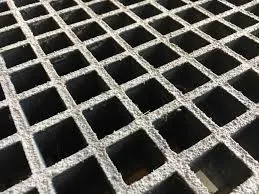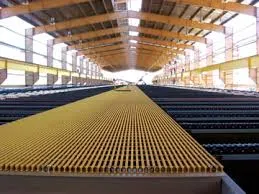
-
 Afrikaans
Afrikaans -
 Albanian
Albanian -
 Amharic
Amharic -
 Arabic
Arabic -
 Armenian
Armenian -
 Azerbaijani
Azerbaijani -
 Basque
Basque -
 Belarusian
Belarusian -
 Bengali
Bengali -
 Bosnian
Bosnian -
 Bulgarian
Bulgarian -
 Catalan
Catalan -
 Cebuano
Cebuano -
 China
China -
 China (Taiwan)
China (Taiwan) -
 Corsican
Corsican -
 Croatian
Croatian -
 Czech
Czech -
 Danish
Danish -
 Dutch
Dutch -
 English
English -
 Esperanto
Esperanto -
 Estonian
Estonian -
 Finnish
Finnish -
 French
French -
 Frisian
Frisian -
 Galician
Galician -
 Georgian
Georgian -
 German
German -
 Greek
Greek -
 Gujarati
Gujarati -
 Haitian Creole
Haitian Creole -
 hausa
hausa -
 hawaiian
hawaiian -
 Hebrew
Hebrew -
 Hindi
Hindi -
 Miao
Miao -
 Hungarian
Hungarian -
 Icelandic
Icelandic -
 igbo
igbo -
 Indonesian
Indonesian -
 irish
irish -
 Italian
Italian -
 Japanese
Japanese -
 Javanese
Javanese -
 Kannada
Kannada -
 kazakh
kazakh -
 Khmer
Khmer -
 Rwandese
Rwandese -
 Korean
Korean -
 Kurdish
Kurdish -
 Kyrgyz
Kyrgyz -
 Lao
Lao -
 Latin
Latin -
 Latvian
Latvian -
 Lithuanian
Lithuanian -
 Luxembourgish
Luxembourgish -
 Macedonian
Macedonian -
 Malgashi
Malgashi -
 Malay
Malay -
 Malayalam
Malayalam -
 Maltese
Maltese -
 Maori
Maori -
 Marathi
Marathi -
 Mongolian
Mongolian -
 Myanmar
Myanmar -
 Nepali
Nepali -
 Norwegian
Norwegian -
 Norwegian
Norwegian -
 Occitan
Occitan -
 Pashto
Pashto -
 Persian
Persian -
 Polish
Polish -
 Portuguese
Portuguese -
 Punjabi
Punjabi -
 Romanian
Romanian -
 Russian
Russian -
 Samoan
Samoan -
 Scottish Gaelic
Scottish Gaelic -
 Serbian
Serbian -
 Sesotho
Sesotho -
 Shona
Shona -
 Sindhi
Sindhi -
 Sinhala
Sinhala -
 Slovak
Slovak -
 Slovenian
Slovenian -
 Somali
Somali -
 Spanish
Spanish -
 Sundanese
Sundanese -
 Swahili
Swahili -
 Swedish
Swedish -
 Tagalog
Tagalog -
 Tajik
Tajik -
 Tamil
Tamil -
 Tatar
Tatar -
 Telugu
Telugu -
 Thai
Thai -
 Turkish
Turkish -
 Turkmen
Turkmen -
 Ukrainian
Ukrainian -
 Urdu
Urdu -
 Uighur
Uighur -
 Uzbek
Uzbek -
 Vietnamese
Vietnamese -
 Welsh
Welsh -
 Bantu
Bantu -
 Yiddish
Yiddish -
 Yoruba
Yoruba -
 Zulu
Zulu
Feb . 03, 2025 05:57
Back to list
Oblate Tanks
FRP fittings, commonly known as fiber-reinforced plastic fittings, have revolutionized various industries due to their unparalleled combination of durability, lightweight characteristics, and corrosion resistance. These fittings are increasingly being adopted in sectors such as water treatment, chemical processing, and construction, where traditional materials like metal or concrete fall short.
Trustworthiness in FRP fittings is established through track records of reliability in various applications. Real-world case studies highlight how municipalities have transformed their wastewater treatment operations by replacing failing infrastructure with FRP fittings. Notably, heavy industries have reported significant savings on operational costs due to reduced downtime and maintenance efforts. Feedback from a leading water treatment facility revealed a drastic reduction in unscheduled maintenance events after integrating FRP into their systems. For those considering a transition to FRP fittings in their own operations, expert installation is crucial. Partnering with experienced engineers who understand the unique properties of FRP will ensure proper handling and installation. Properly installed fittings will capitalize on FRP's flexibility and resilience, providing a system that is both efficient and long-lasting. The nuanced benefits of FRP fittings illustrate their superiority over conventional materials. Their adaptability across a range of applications and environments, coupled with proven cost-effectiveness, positions FRP as a forward-thinking choice for infrastructure and industrial solutions. As industries move towards more sustainable and durable technologies, FRP stands out as a material of the future, increasingly advocated by experts and trusted by industries worldwide. In conclusion, FRP fittings offer a unique blend of durability, adaptability, and reliability that meet the growing demands of modern industries. By aligning with certified suppliers and utilizing expert installation practices, businesses can effectively leverage the advantages of FRP, thereby optimizing their operations for the long term.


Trustworthiness in FRP fittings is established through track records of reliability in various applications. Real-world case studies highlight how municipalities have transformed their wastewater treatment operations by replacing failing infrastructure with FRP fittings. Notably, heavy industries have reported significant savings on operational costs due to reduced downtime and maintenance efforts. Feedback from a leading water treatment facility revealed a drastic reduction in unscheduled maintenance events after integrating FRP into their systems. For those considering a transition to FRP fittings in their own operations, expert installation is crucial. Partnering with experienced engineers who understand the unique properties of FRP will ensure proper handling and installation. Properly installed fittings will capitalize on FRP's flexibility and resilience, providing a system that is both efficient and long-lasting. The nuanced benefits of FRP fittings illustrate their superiority over conventional materials. Their adaptability across a range of applications and environments, coupled with proven cost-effectiveness, positions FRP as a forward-thinking choice for infrastructure and industrial solutions. As industries move towards more sustainable and durable technologies, FRP stands out as a material of the future, increasingly advocated by experts and trusted by industries worldwide. In conclusion, FRP fittings offer a unique blend of durability, adaptability, and reliability that meet the growing demands of modern industries. By aligning with certified suppliers and utilizing expert installation practices, businesses can effectively leverage the advantages of FRP, thereby optimizing their operations for the long term.
Next:
Related Products









